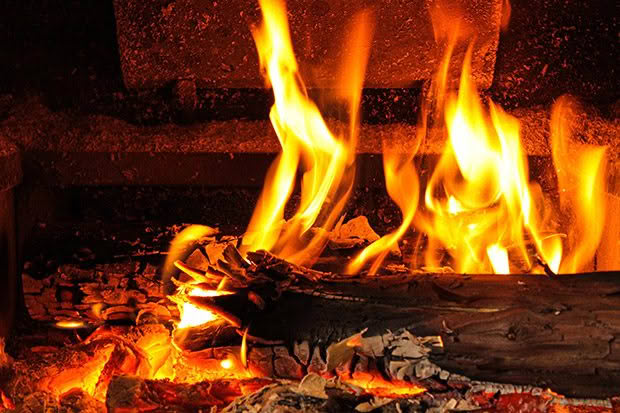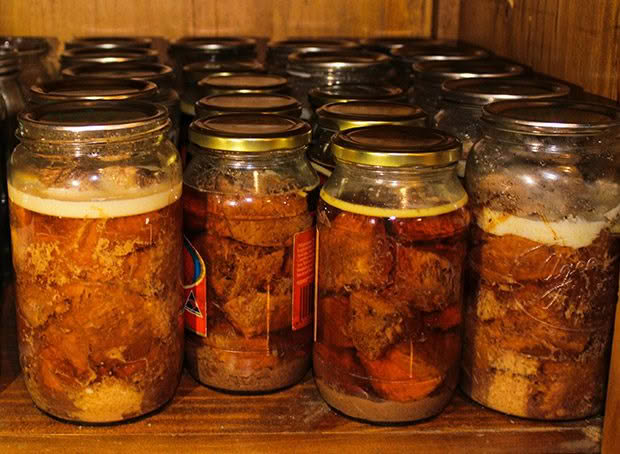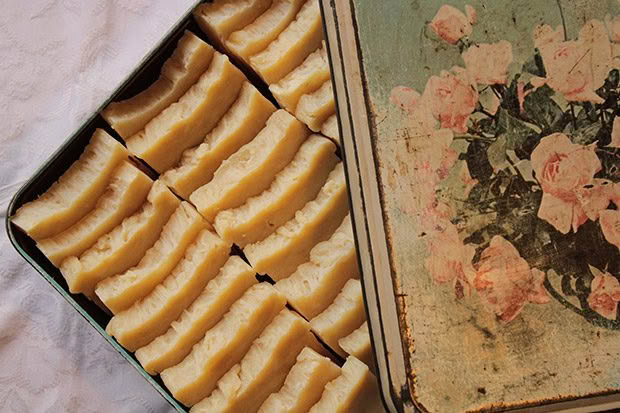Rebecca Stewart: The hearth fires of home

Winter in Rebecca Stewart’s off-grid bungalow means everyone’s drawn to the crackling fireplace.
Photos: Summer Stewart
It’s evening when I sit down at the dining table, pondering about what to write about for this month’s blog. On the woodstove yacon juice bubbles away in the big stock pot. It needs to be reduced to a syrup so it may take a while. David has run his bath, which is a nightly ritual during the cooler months to use up the excessive hot water from the wetback.
Winter and the constant use of the wood stove means we have to manage excess hot water. Otherwise it can overheat, causing hot water to erupt onto the roof or damage the tempering valve. Some people run their wetback cylinder without the tempering valve. However, having boiling-hot water coming out of the taps is a bit scary — especially with children around.
Our faithful wood stove has many functions in the dreary winter months. The washing dries on a rack suspended from the ceiling above it and on a clothes-horse tucked behind the door. Our $2 whistling kettle from the local dump shop sits on a trivet on the back of the cast-iron stove top, just waiting to be plonked back on the heat for a cuppa. Many meals are cooked on it, and in the oven underneath.

This morning’s bread was baked in the oven with the rack on the floor of the oven (otherwise the top gets overcooked). Meanwhile, lifting the rack gets chicken skin or roast veggies nice and crispy. It’s been a bit of an experience learning to regulate the oven temperature. Getting the right balance between too much heat and not enough is still tricky, as the wrong wood will result in dinner that’s a bit too crispy. Pine generally keeps a steady heat while hardwoods pump out the heat and, well, blacken the food. When stoking up with hardwood it is a good idea to check that the oven is empty first.
Early in the morning and in the evening there’s a constant battle between humans and cats for the fireside chair, with our old cat Tinkerbell often curled up on the hearth. It’s easy for the crackling flames of the fire to lull you into a contemplative mood.
The dancing flames of fire have mesmerised people for thousands of years, drawing humans into its flickering light and warmth. Traditionally the hearth was the centre of the home, providing warmth, light, protection, and food. It symbolises love, fertility and life and in many cultures the hearth is considered a sacred space.

A cake tin one containing Rebecca’s homemade lard soap.
In our old bungalow the fire is at the centre of the main living space. It warms our house, keeps the damp away, heats our water and cooks our food. Life fills our kitchen from the primitive sounds of the fire, a low roar as the fresh wood catches alight, the crackling of the sap and the tinking of the heating metal.
It melds with the gentle bubbling of the kettle on the trivet, the bustle of preserving beef in the pressure canner, making lard soap in the slow cooker or just the everyday activities of meals and dishes.
Then there’s the quiet times like now, spent writing at the kitchen table. It is here that articles take shape and blogs evolve. Plans are made for garden and farm, discussions take place and the state of the world mulled over, all in the safety and warmth of the hearth fires of home.
ABOUT REBECCA
In 2020, Rebecca and David Stewart subdivided and sold their block in a tiny Manawatu village in order to create a more self-sufficient way of life. Choosing to buy 6ha (14.8 acres) of land, most of it in pines in a remote corner of King Country, meant no mortgage and treasured financial independence. The distance doesn’t stop Rebecca from running the increasingly popular Homesteading New Zealand group on Facebook. She also posts regular updates on their farm’s transformation to its own page, Fodder Farm. Read more about their journey here, and visit thisnzlife.co.nz every month for the latest from their slice of New Zealand.

